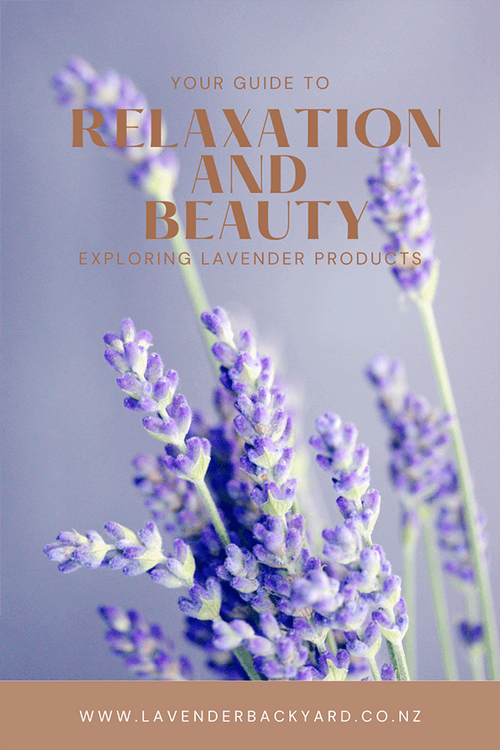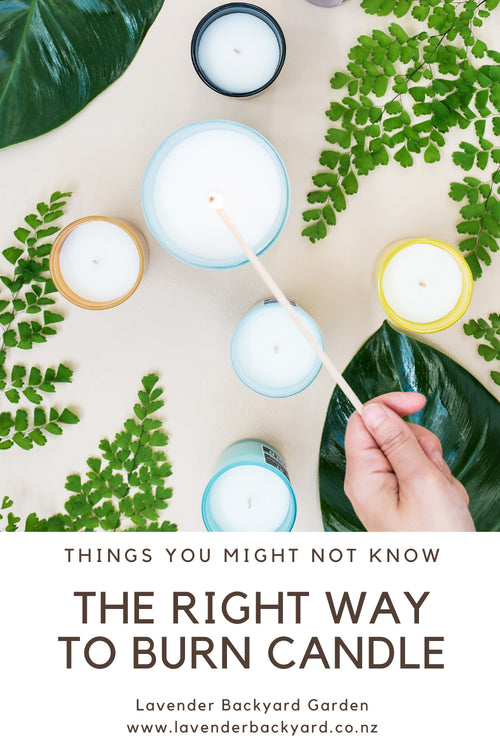How to Naturally Sleep Better with Herbal Remedies?

Struggling to get a good night’s sleep? You’re not alone—many people find it difficult to fall asleep, stay asleep, or wake up feeling truly rested. The good news is, you don’t have to rely on medication to improve your sleep.
A variety of gentle, natural remedies—including calming herbs, soothing essential oils, and simple nighttime rituals—can help you unwind and sleep more deeply.
In this guide, you’ll discover which herbal remedies work best for sleep, how to use them in your nightly routine, and practical lifestyle tips for turning restful sleep into reality.
🔎 Table of Contents
🌱 What Are Natural Remedies?
Natural remedies are non-pharmaceutical methods that use herbs, essential oils, minerals, and simple lifestyle changes to support relaxation, improve sleep, and promote well-being. From calming herbal teas to aromatherapy pillow sprays, these gentle approaches help your body and mind find balance—often with minimal side effects.
😴 What Natural Remedies Help Sleep?
A variety of natural remedies have been shown to support better sleep. Here are some of the most effective options:
-
Herbal Teas: Chamomile, lavender, valerian root, lemon balm, and passionflower teas are all known for their relaxing, sleep-promoting properties.
-
Aromatherapy: Scents like lavender and chamomile—used in pillow mists, sachets, or diffusers—help create a soothing bedtime atmosphere.
-
Magnesium: This essential mineral, whether taken as a supplement or used in a topical spray, supports muscle relaxation and restful sleep.
- Melatonin: A hormone naturally produced by the body; melatonin supplements can help regulate sleep-wake cycles, especially for those experiencing insomnia or jet lag.
- Lifestyle Habits: Consistent bedtime routines, screen-free wind-down time, and relaxation techniques like meditation all contribute to higher sleep quality.
Incorporating these gentle, evidence-based remedies into your nightly routine can help you unwind, fall asleep more easily, and wake up refreshed.
🌿 Top Natural Sleep Aids That Really Work
🍵 Chamomile: The Classic Herbal Sleep Tea
Chamomile has long been treasured as a gentle, natural remedy for relaxation and sleep. Its calming compounds help soothe the nervous system and reduce anxiety, making it easier to drift into restful slumber.
How to use: Enjoy a cup of Lavender Chamomile Herbal Tea before bed. The warmth and aroma help signal to your body that it’s time to wind down.
🌸 Lavender: The Calming Scent for Better Rest
Lavender’s soothing scent is world-famous for relieving stress and promoting relaxation. Studies show lavender can improve sleep quality and help you fall asleep faster.
How to use:
- Try a Sleeps Well Lavender Pillow Sachet under your pillow.
- Use Sleep Spray or Lavender Essential Oil in a diffuser.
- Apply Aromatherapy Sleep Rollerball to your wrists or temples as part of your wind-down ritual.
- Massage a little Lavender Sleep Balm onto your temples, wrists, or chest before bed for an extra boost of soothing scent.
🌱 Valerian Root: Nature’s Answer to Insomnia
Valerian root is a traditional herbal remedy used to ease anxiety and support deep, restorative sleep. Its natural compounds help quiet a busy mind and promote drowsiness.
How to use: Brew valerian root tea or take a valerian supplement about an hour before bedtime.
🌙 Melatonin: Supporting Your Sleep-Wake Cycle
Melatonin is a hormone your body naturally produces to help regulate sleep. Supplemental melatonin can help reset your internal clock and improve sleep patterns, especially for those with insomnia or jet lag.
How to use: Take a low-dose melatonin supplement 30–60 minutes before bedtime, as recommended by your healthcare provider.
🧂 Magnesium: The Mineral for Relaxation
Magnesium supports muscle relaxation and a healthy nervous system, making it a natural choice for better sleep. Many people are low in magnesium, which can lead to restless nights.
How to use:
- Massage Lavender Magnesium Sleep Cream into your skin before bed for a soothing touch.
- Spray Lavender Magnesium Oil onto tired muscles and gently rub in.
- For a calming self-care moment, try a light massage with our Lavender Massage Oil.
🛌 When to Use Herbal Sleep Remedies: A Quick Guide
🌿 Recommended Remedies for Common Sleep Concerns
| Symptom or Sleep Concern | Recommended Herbal Remedy | How to Use It |
|---|---|---|
| Trouble falling asleep | Chamomile tea, Lavender sleep spray | Sip tea 30–60 minutes before bed; spray pillow or room just before lying down |
| Frequent night waking | Valerian root, Magnesium cream | Apply cream before bed; take valerian supplement or tea after dinner |
| Stress-related insomnia | Lavender balm, Bergamot essential oil | Use balm on temples or chest; diffuse bergamot oil during wind-down time |
| Restless body or tense muscles | Magnesium spray, Lavender massage oil | Massage into legs, shoulders or feet before bed |
| Sleep support for children | Chamomile tea, Roman chamomile oil | Offer diluted chamomile tea or diffuse oil in a child-safe blend |
🌙 Build Your Bedtime Ritual with Herbal Remedies
Creating a consistent bedtime ritual is one of the most effective ways to signal to your body that it’s time to relax and rest. When paired with herbal sleep aids like chamomile tea, lavender sprays, and magnesium creams, your nightly routine becomes a powerful tool for promoting deep, restorative sleep. Below is a gentle, step-by-step example you can follow or adapt based on your lifestyle and preferences.
🕗 Sample Bedtime Routine: Wind Down Naturally
| Time | Activity | Recommended Herbal Remedy |
|---|---|---|
| 8:30 PM | Brew a calming herbal tea | Lavender Chamomile Tea |
| 8:45 PM | Take a warm bath with herbs or salts | Chamomile tea bags or Lavender Epsom salts |
| 9:00 PM | Massage & moisturize for muscle relaxation | Lavender Magnesium Cream or Massage Oil |
| 9:15 PM | Prep your sleep space and aromatherapy | Lavender Pillow Spray, Sleep Sachet |
| 9:30 PM | Wind down with screen-free activities | Read, journal, or stretch with lavender balm |
💡 Tip: You don’t need to follow this bedtime routine exactly. Feel free to adjust the time, order, or herbal remedies to suit your lifestyle. The key is consistency—repeating calming rituals trains your body to recognise sleep cues and makes it easier to fall asleep naturally over time.
🌼 More Ways to Enjoy Herbal Remedies for Sleep
🍵 How to Blend Herbal Teas for Sleep
Blending herbs can enhance their calming effects and create a soothing bedtime ritual. Some popular combinations include:
- Chamomile + Lavender: Double the relaxation with these two classic sleep herbs.
- Chamomile + Lemon Balm: A gentle, calming tea that also supports digestion.
- Valerian Root + Passionflower: Potent support for restless nights (best used when you need stronger sleep aid).
💡 Tip: Steep 1–2 teaspoons of dried herbs (or a tea bag) in hot water for 5–10 minutes. Add a touch of honey or a slice of lemon for extra comfort. Always start with small amounts to see how your body responds.
🌺 Aromatherapy Beyond Lavender
While lavender is the superstar for sleep, other essential oils can support your nighttime routine:
- Chamomile Oil: Calms nerves and reduces tension.
- Roman Chamomile: Often used for children’s sleep blends.
- Bergamot: Relieves stress and balances mood.
- Clary Sage: Helpful for calming a restless mind.
How to use aromatherapy for sleep:
- Diffuser: Add a few drops of essential oil to a diffuser 30 minutes before bed.
- Pillow Spray: Make your own by mixing distilled water, witch hazel, and a few drops of essential oil in a spray bottle.
- Bath: Add a few drops to your evening bath, combined with Epsom salts, for deeper relaxation.
🥄 Incorporating Herbs into Evening Rituals
- Herbal Bath Soak: Add chamomile or lavender tea bags directly to your bathwater for skin-soothing, aromatic relaxation.
- Herbal Sachets: Place dried herbs in a small pouch and tuck it into your pillowcase or beside your bed.
- Massage Oil: Blend lavender or chamomile essential oil with a carrier oil (like sweet almond or jojoba) for a calming foot or neck massage before bed.
🩺 Herbal Safety & Tips
- Start Simple: Try one herbal remedy at a time to gauge its effects on your body.
- Consult Your Healthcare Provider: If you’re pregnant, nursing, taking medication, or have health concerns, check before using strong herbs (especially valerian, passionflower, or supplements).
- Children and Pets: Some essential oils are not safe for children or pets—use milder options like chamomile and always dilute oils.
🌿 When to Combine Herbal Remedies with Other Approaches
Herbal remedies work best when combined with healthy lifestyle habits:
- Drink your calming tea in a dim, quiet room.
- Pair aromatherapy with a nightly meditation or gentle stretching routine.
- Use herbal pillow sprays alongside blackout curtains or a white noise machine for a full sensory wind-down.
❓Frequently Asked Questions
Q: Are herbal sleep remedies safe to use every night?
A: Most herbal remedies like chamomile tea, lavender, and magnesium are safe for regular use by healthy adults. However, it’s best to introduce new herbs one at a time and consult your healthcare provider if you are pregnant, nursing, on medication, or have a health condition.
Q: How long does it take for herbal remedies to work?
A: Many people notice relaxing effects from herbal teas and aromatherapy within 30–60 minutes. However, some remedies, such as valerian root, may need to be used consistently for several nights to experience the full benefits.
Q: Can I combine different herbal remedies for better sleep?
A: Yes! Many people find that combining remedies, such as sipping herbal tea while using a lavender pillow spray or magnesium cream, creates a more relaxing bedtime routine. Always start with small amounts to see how your body responds.
Q: Are there any side effects from herbal sleep aids?
A: Most gentle herbs like chamomile and lavender have minimal side effects. Stronger herbs like valerian root or supplements may cause drowsiness or interact with some medications. Always follow product instructions and consult your doctor if unsure.
Q: Can children use herbal sleep remedies?
A: Some remedies, like diluted chamomile tea or lavender aromatherapy, are generally safe for children, but always check with a pediatrician first. Never use undiluted essential oils or strong herbs with young children.
Q: Will these remedies cure insomnia?
A: Herbal remedies can help promote relaxation and support better sleep, but chronic insomnia may need professional evaluation. If you struggle with severe or long-term sleep issues, consult a healthcare provider for guidance.
Q: What’s the best way to start using herbal remedies for sleep?
A: Begin by choosing one remedy, such as a calming herbal tea or a lavender pillow spray, and add it to your evening routine. Keep your bedtime consistent, and make your bedroom a relaxing space to maximize benefits.
🌙 Final Thoughts
Improving your sleep doesn’t have to mean turning to medication or complicated routines. With a few simple changes and the power of nature’s best remedies, you can create calming bedtime rituals that support deeper, more restful sleep.
Whether you prefer sipping a soothing herbal tea, enjoying the gentle scent of lavender, or making small changes to your sleep environment, every step counts toward a healthier, more rejuvenating night’s rest.
💡 Remember: Consistency is key. Experiment with different herbal remedies and routines to discover what works best for your body and mind.
🌿 Ready to turn restful sleep into reality?
Explore our Relaxation & Sleep collection for natural pillow sprays, herbal teas, and other gentle sleep aids.
🧭 Want to keep learning? Return to the full Natural Sleep Aid Guide for more expert tips, tools, and holistic sleep solutions.


